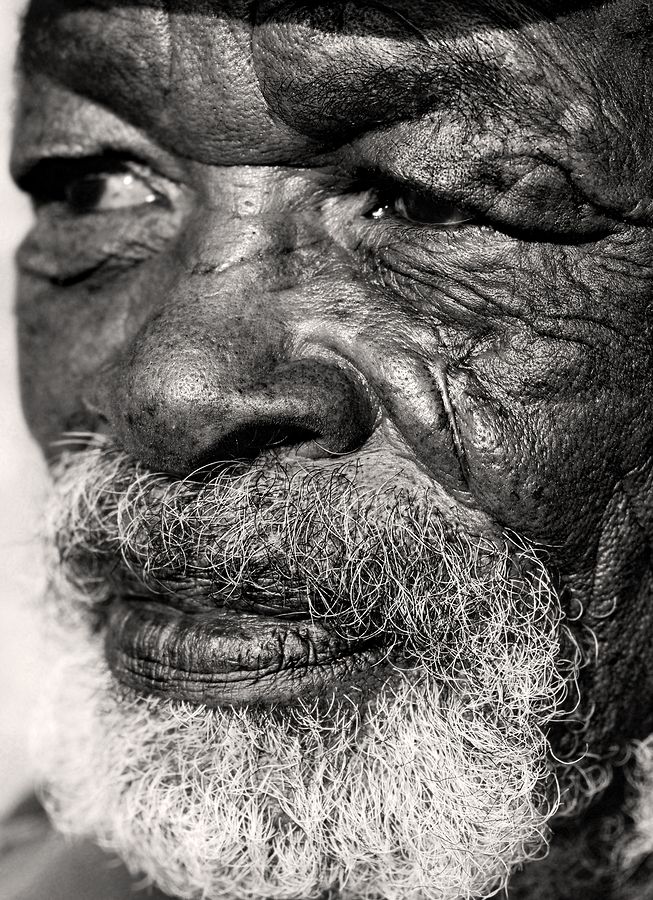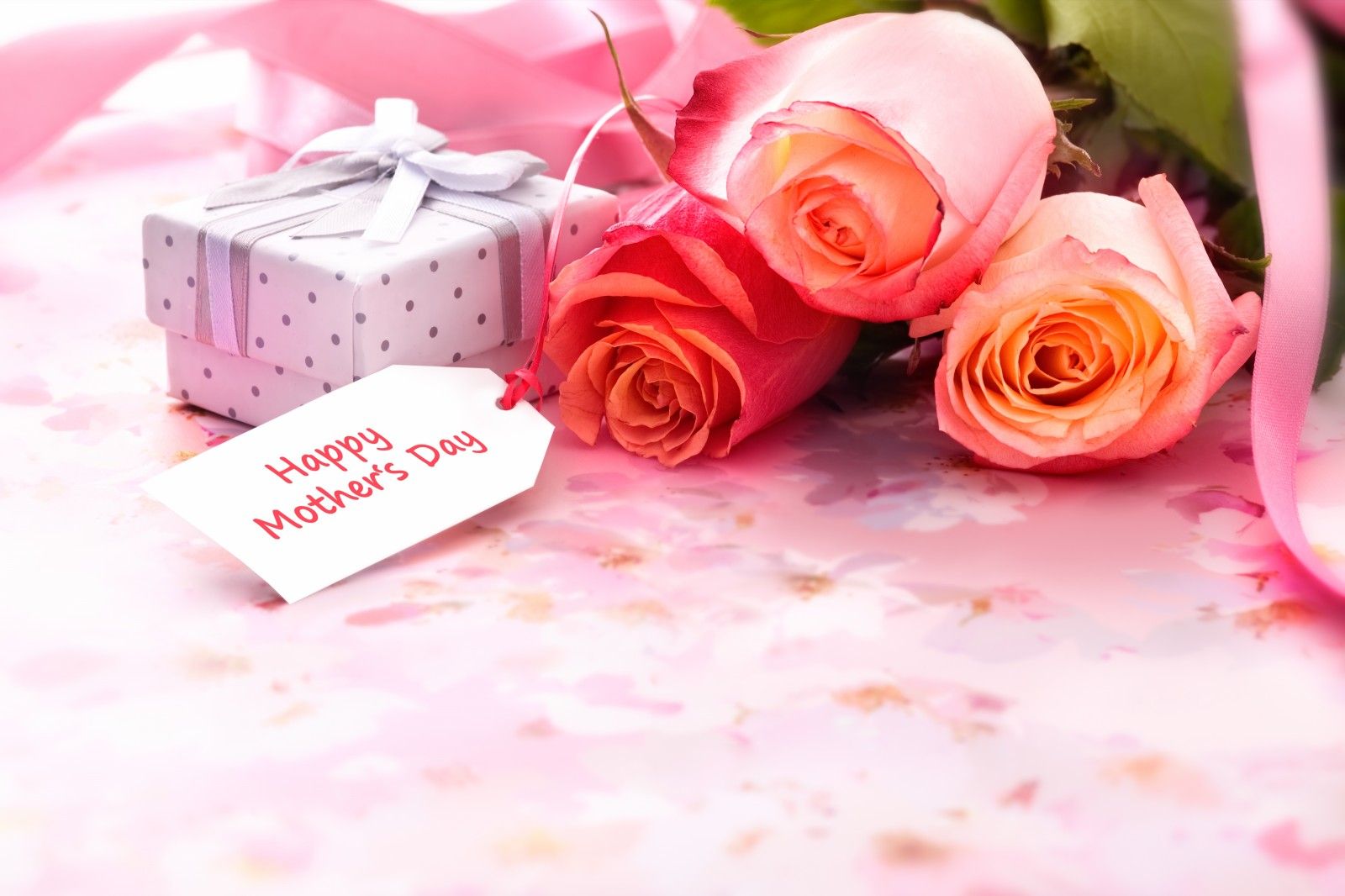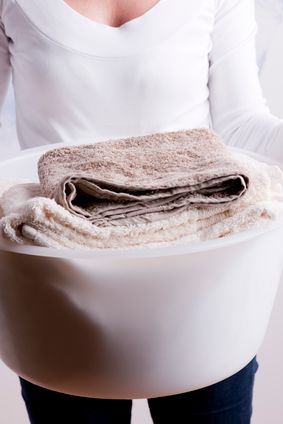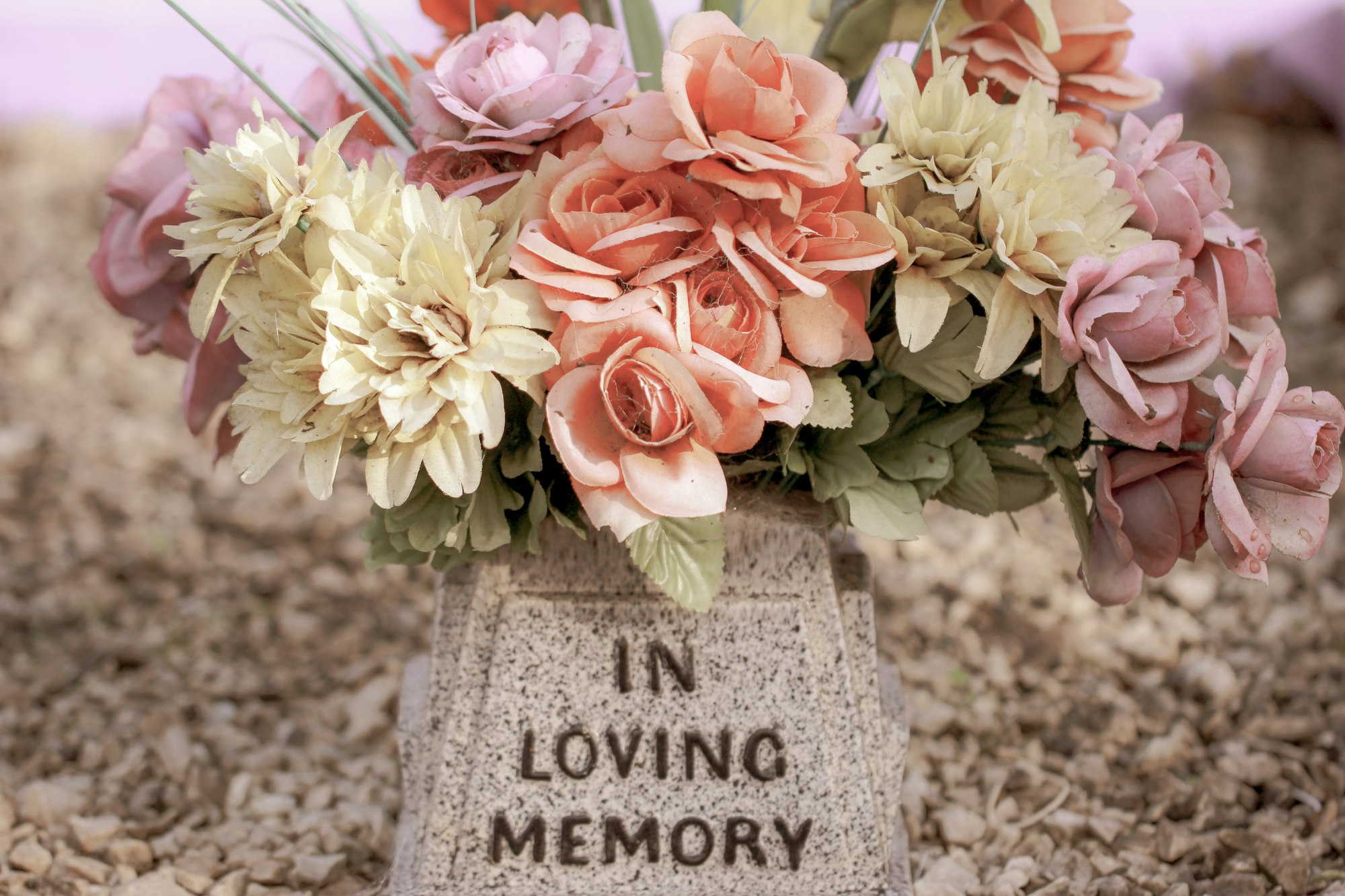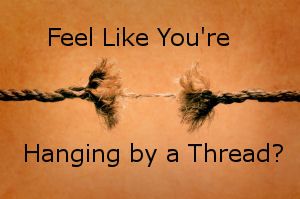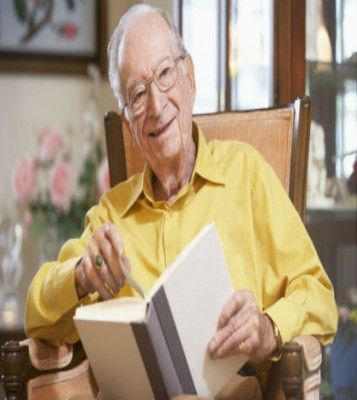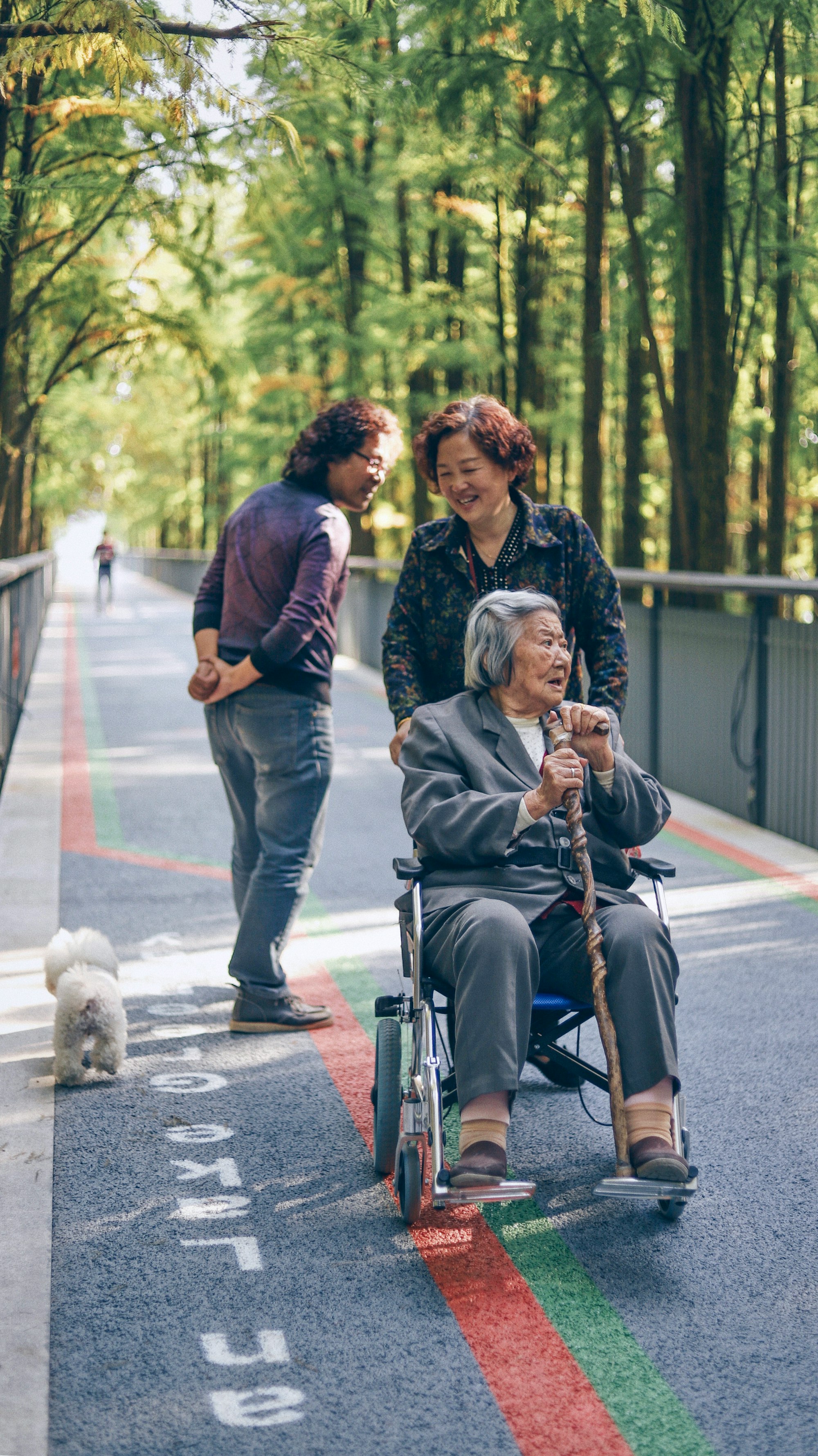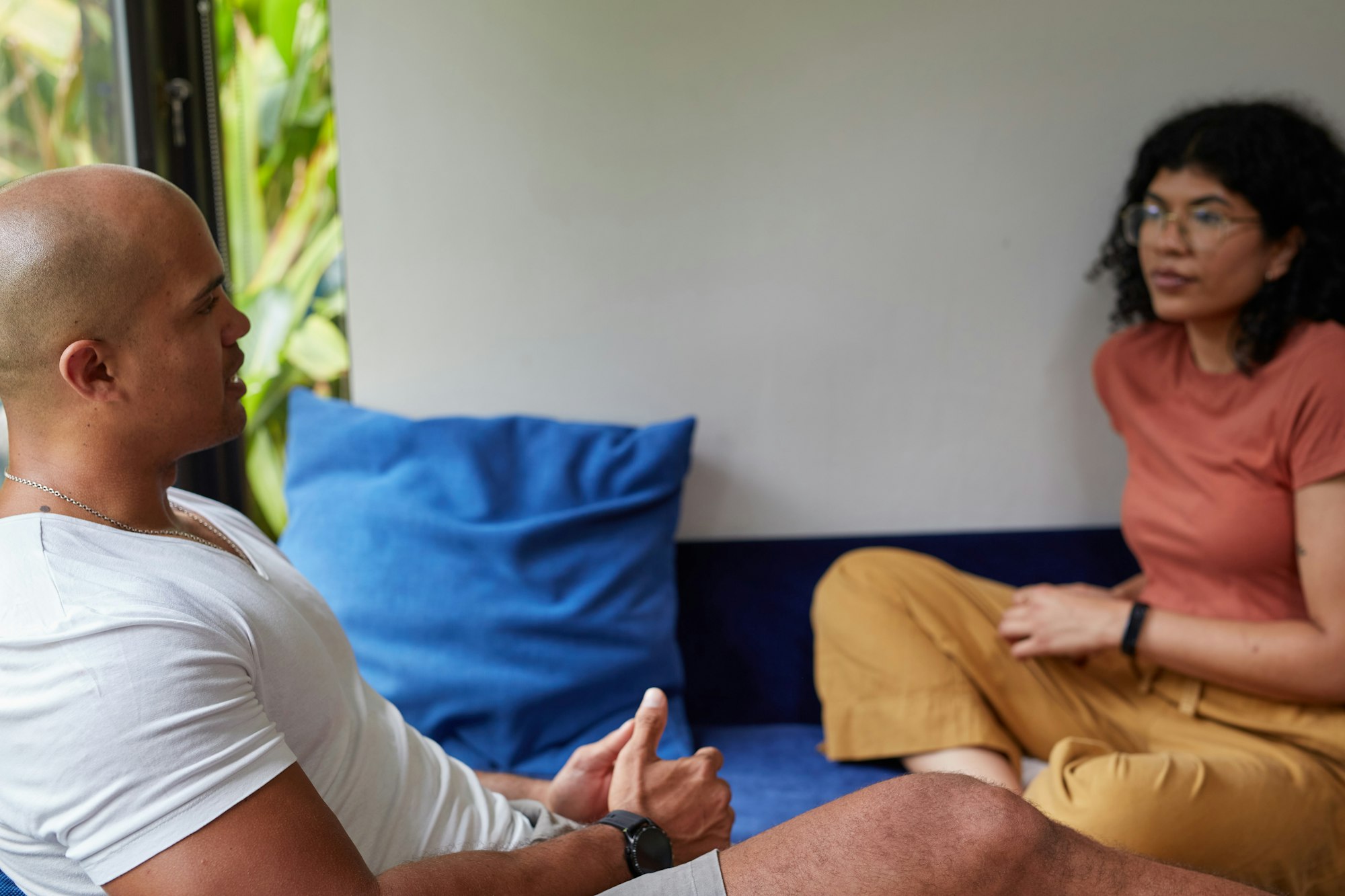What is Caregiver Stress Syndrome? With Tracey Lawrence - Episode 19

Welcome to a conversation about an important topic that touches the lives of countless individuals: caregiver stress syndrome. In this discussion, we're joined by Tracy Lawrence and Diane Carbo, both experienced caregivers and advocates for self-care. Tracy runs the website grandfamilyplanning.com, and Diane is from Caregiver Relief. They delve into the challenges, signs, and strategies to overcome the stress and emotional burden that caregivers often face.
Diane Carbo: Hi, this is Diane carbo and I’m with caregiver relief. And today I have Tracey Lawrence. She has her own company. Tracy S lawrence.com, grand family planning. And she is a regular podcast contributor here for us and today, Tracy and I are going to talk about caregiver stress, what the signs and symptoms are and how to overcome the caregiver, stress and burden that many. Of us suffer. Yep. Tracy, thank you for joining me today. We just got off a zoom call with Tracy on this topic. So we’re all warmed up here. I wanted to start our conversation off with first self care is so important for the family caregiver, but, most family caregivers can’t relate to it.
Diane Carbo: So I’d like to start by using an analogy of when we’re on an airplane. They always tell us. Put the oxygen on you first. And people say, oh, that’s awful, but you know what, if you can’t breathe, you can’t help anybody else. So that’s one of the analogies that I think people most relate to, but it’s also the most forgotten is the thing is that we can do as a caregiver is you have to take care of yourself in order to be able to take care of somebody else.
Tracey Lawrence: Yes. Yeah. And that’s, it’s something that we tend to lose sight of. We think that, we’re, we have this tendency to think of ourselves as, super human and that, nothing can possibly happen to us, but the truth is that caregiving is hard. And if we’re going to.
Tracey Lawrence: The taking care of other people that we have to put our own care. First. It’s extremely important if we go down in flames and everybody who depends on us for getting through their days also goes down in flames. So it’s not being selfish. It’s being smart. It’s. Taking care of your own reserves of energy and being able to perform at, at the high level that’s required in order to be able to get stuff.
Diane Carbo: Exactly caregiver, stress syndrome is a real condition and it’s characterized by total physical, mental and emotional exhaustion and it’s often due to neglect of our own physical and emotional health, because we’re so busy taking care of somebody else. We’re so invested in caring for those that we neglect ourselves in our own needs.
Tracey Lawrence: Absolutely. And it doesn’t serve anyone to behave that way. One of the things that you and I have discussed on a number of occasions is, when we’re caregiving, someone who has dementia, That we put ourselves in peril. It’s dangerous. 50% of the time when we’re taking care of somebody who has dementia, caregivers die before the people they’re taking care. What have we accomplished by doing that?
Diane Carbo: Exactly. Caregiver, stress leads to burnout, compassion, fatigue, and then the caregiver stress syndrome, which is the burden of caring for somebody, most caregivers view as unavoidable because they feel like they have no time for self care.
Tracey Lawrence: Women in our society have a really nasty tendency to port ourselves. It’s part of the way we’ve been raised. Part of the expectation that, you know and of course, , that is changing, but there, it’s still lingers, particularly in women who’ve been around a little longer.
Tracey Lawrence: Yeah we’ve been drained, we, we don’t put ourselves first because, we haven’t been encouraged. So we just we just accepted, this is our role, this is what we’re supposed to do.
Tracey Lawrence: This is what’s expected of us. And I, and we also, I think care a little bit too much about what other people think. Oh, yes.
Diane Carbo: One of the issues that you and I are seeing is most baby boomers are not only caring for their parents. They’re also juggling work and raising adolescent children, which increases the risk for depression, chronic illness, and even a decline in their own quality of life.
Tracey Lawrence: Yes. And I know that like for me I don’t have children, you hit a certain stage in your life where you think things are going to. Start getting a little easier for you, right? A lot of people who have, who do have children, they see their children maturing and they’re going off to college.
Tracey Lawrence: And now, oh, now I can think about starting that project though. I thought I would start. And then the phone calls start coming from their pants. And it was, wait a minute. When did I sign up for this? Whether you sign up for it or not, we love our parents and they need us. Okay. And we think they took care of me and now it’s my turn to take care of them. And next thing you know, you’re you’re involved in an unpaid gig that each year.
Diane Carbo: One of the statistics I’d like to make people aware of is especially the caregiving spouse of of somebody with dementia. The emotional and mental strain just of taking care of somebody has a a 63% chance higher that they’re going to die. Both then people who are not caregivers at their age.
Tracey Lawrence: Yes. And that’s important from a couple of perspectives. For one thing, it’s a tragedy to lose a parent like that, but for another thing, a lot of times, and this has been my experience it’s usually, and it just turns things on its head a little bit. It’s the the fault. The male parent who is caring for the the mom and who develops dementia. For some reason, women tend to develop dementia with higher frequency than said than men.
Diane Carbo: It’s all on multitasking that we talked about last week.
Tracey Lawrence: And the husband the dad, in, in good faith says, don’t worry about this kids. I got it. I said it would be till death do us part and the kids hearing this are like, shoo, dodged that one. Okay. Dad’s got this. This is cool. It’s not my problem. And then they get a call. And dad’s had a stroke or a heart attack and he’s in the hospital or he dies and now the kids have got to scramble and they’ve got to step up.
Diane Carbo: Exactly.
Tracey Lawrence: So that stat should alarm the hell out of everyone and make them pay attention. Because you don’t want to be in a position of having to play catch. When you can’t learn the details of your, of the other parent’s care from the person who knows them best, who’s been spending all this time with them. You want to step up while, during that period where, dad says, I got this, you still gotta get involved.
Diane Carbo: I agree a hundred percent. And I want people to know that family, caregivers suffer from sleep deprivation because of the juggling that they’re doing. Even the spouses., they develop poor eating habits. They stop exercising because they’re too mentally and emotionally exhausted and juggling those balls to take care of themselves in that way. Then if they’re working they don’t stay in bed when they’re ill and they postpone or fail to make medical appointments for themselves.
Tracey Lawrence: There are some things that people can do to overcome some of these issues. It, there are some creative ideas . There’s there’s a book called the Alzheimer’s solution by Dean and Ayesha. Sherzai they’re a couple of doctors, a couple and doctors. They have their practice is in Loma Linda, California. They discovered that there was a community of people who are very old and have a very low incidence of cognitive. I read that study.
Diane Carbo: Yeah. I’m very familiar with this. Yes. Go ahead.
Tracey Lawrence: They’re seventh day Adventists. Now what’s religion got to do with cognitive health? Their lifestyle okay. Is highly supportive. Of not developing dementia because they they’re primarily vegetarians. They don’t drink alcohol. They’re very social. They’re very spiritual. And all of the things that, they practice as part of their spiritual belief system also serves them well as keeping them cognitively intact. Throughout their lives. And the, one of the reasons I bring this book up is that there are actually some actionable ideas in the book for people who are starting to slow down or develop cognitive decline, or have concerns about their cognitive condition.
Tracey Lawrence: And they offered some ideas that they actually used for their patients. And we’re able to reverse cognitive decline in some cases, by helping people to find creative ways to incorporate exercise into their lives.
Diane Carbo: Exactly. And socialization.
Tracey Lawrence: Yep. And to substitute meals that. More helpful. Primarily there, it’s more of a plant-based diet seems to be helpful in aiding cognition. By being educated about what some of the mechanisms are that cause cognitive decline or that, that cause poor health as we age, if we get more creative, About the things that we do with our bodies and put into our bodies while we’re still okay. We’ve got a better shot of coming through. Without developing cognitive decline ourselves.
Diane Carbo: That’s a point well taken. I can tell you that family caregivers are at an increased risk for depression and overcompensate many of caregivers, overcompensate with excessive use of alcohol, tobacco, other drugs or food. Yes. Because is a an a very unpredictable life. Yes. The stress that it causes and the continuous demands are enormously stressful, and caregivers are more likely to have a chronic illness and non caregivers . They usually have a high level cholesterol in their bodies. Their blood pressures are usually high and they have tendency to be overweight. And it’s estimated that 50 to 60% of caregivers are seriously depressed. And if they took time to go to the doctors they would get the diagnosis of major depressive disorder.
Diane Carbo: Oh, and we’ve talked about this on on the zoom call where many times the attitudes and beliefs are personal barriers that we have. We’re not taking care of ourselves. It may even be a lifelong pattern. As I know, I’m very guilty of this as I’ve been a caregiver since I was a teen. What good is good. Am I going to be to somebody? If I become ill or if I die, so you have to break those old patterns. , one of the things you brought up on the zoom call that we had was how to Start identifying what we need to change in our lives to provide self care.
Diane Carbo: What beliefs are we having? And you brought up about how people think you’re conceited or selfish, if you want to take some time out for yourself. It’s self preservation, and look who wants to live a long life. If you spend most of it feeling like you wish you weren’t alive.
Tracey Lawrence: Okay. And it’s it serves everyone who cares about us. If we’re taking better care of ourselves, if we’re happier, they’re happier. If we’re healthier, we’re better able to cope with their situation and get them through whatever they’re going through. Yeah. Yeah. So it’s self-love, that gets such a negative connotation in our society and really it should be so such basic concept, kids should be taught this in school that it’s okay to love yourself. You’re right. We have trouble asking for what we need, and then we feel inadequate. If we have to ask for help.
Diane Carbo: Yes. It’s a sign. It’s a sign of weakness to ask and that’s so wrong.
Tracey Lawrence: Actually. It’s the reverse, it takes strength to ask for it.
Diane Carbo: Yes, it does. It takes courage and and some people feel they have to be a caregiver so that they’re worthy of somebody’s affection. They’re trying to prove a point to the person that they’re caring for or to the other family members that, Hey, I’m better than you because I’m here. Making the sacrifice because I love mom more or dad more or whatever.
Tracey Lawrence: I have a brother and he resents me. And while I got him off the hook for having to care for my folks he resented. That, that I took the role that I did. I made him feel guilty now. I didn’t make him feel guilty. It’s not that I did anything to make him feel guilty specifically, but his way of operating in the world is when he, just does something or neglects to do something that he could have. He uses guilt as a cudgel and he feels because he feels so bad because of the guilt he has placed upon himself, that he is somehow a more pious person.
Tracey Lawrence: Exactly. Yeah. And then it takes you that yeah. On the victim on me. So interesting. When, and when you understand how people’s minds work and you know why they do what they do, it’s just liberating, but it’s also, it’s just very sad, there’s no reason , for people to live their lives in that way. Guilt is such a waste of time.
Diane Carbo: It absolutely is. It negates all the good you’ve ever done, and it causes you to feel shameful. First of all, nobody can make you feel good. You’ll pay you choose to feel guilty. And that’s the other thing that I think that you and I both say that really upsets me to caregivers is you always have a choice.
Diane Carbo: Yeah, you may not like the choice. You may not be comfortable with the choice. You may think that it’s selfish. What’s the choice that you’re making, but you always have a choice. I think one of the things I hear from so many caregivers is if I don’t do it, no one will, or I’m the one that’s totally responsible for my parents’ health or another thing they’ll say is, or their thinking is if I get this right, I’m going to get all the love, attention and respect that I deserve from my family not going to happen or I made a promise that I would do that. You know what? You don’t know what you promised and what is actually occurring.
Diane Carbo: You have no way of seeing into the future. So you need to readdress that promise. And I covered that enough in my communication course, there’s so many things that we need to do. And a lot of it is based on a negative self-talk yes, our attitudes, so true. And we really need to overcome them.
Tracey Lawrence: Yes. Absolutely. So many things that we tell ourselves really aren’t. We just, we have all these ideas of the way other people regard us. And the bottom line is that, the one person you have to live with your entire life. And the one person opinion of yourself matters is yours. And a lot of the extra stuff that we do for others thinking that they’ll really. Appreciate it. They don’t even notice.
Diane Carbo: I agree a hundred percent like how much work went into that . our caregivers can actually reduce their personal stress by understanding that their perceptions and response to an event is a significant factor in how we adjust and cope with it. So when you feel that your caregiving situation is Involuntary, and you don’t have a choice that increases your chance to experience distress and resentment burnout and rage. And it’s really tough. Here’s another thing is so many caregivers feel failure if they can’t make their family members.
Diane Carbo: That they’re caring for feel better or heal them and or is it they’re losing them and they feel they’re losing control and they’re not coping with it. That’s another whole ball game. Yeah and we’re just human beings
Tracey Lawrence: that’s another thing that I remind people about, they there’s this whole syndrome where, people think, oh, my parents did so much for me growing up. They raised me and they sacrificed for me and they did all this stuff. But if you take a step back and you really take an honest look at your childhood and what happened for real, you will start to remember that there were things that your parents didn’t do.
Diane Carbo: I will tell you, they will let you know.
Tracey Lawrence: But then you gotta say to yourself they just, the best thing. Do that, right? It’s as we get older and we get more of an appreciation for what it is that they were going through, when, during their time taking care of us, they did the best they could. And so I say to you, caregivers, who almost mythologize out how great your trial did was because your parents gave up so much. When you are in a position where you feel like you’re falling short, always give yourself a break and say, you’re doing the best you can, and that you should never ever feel guilty for anything you did or didn’t do. Because at any given time, you are doing the very best that you can with what you have. And you’re doing. An extremely difficult and important job that nobody else really wants to do.
Diane Carbo: Exactly. And I think one of the things you have to do is take a step back, like you’re saying and say, what is causing this stress for me? Is it, am I doing too much? Or is it about having family making judgments or am I feeling inadequate? Another thing is. And we talked about this before you and I, the inability to say no set limits and make boundaries. As a lifelong caregiver, I can tell you, one of the issues I’ve always had in my life is saying no. Setting limits and boundaries with family members. when I started to do this I was changing my role. And we’ve discussed this, the family role in our roles play a series. Part in our family caregiving situation. like I said, I’m the bossy, know it, all sister heard it all my life, okay. Get over it. I’m the oldest of four.
Tracey Lawrence: Yeah. Okay. You’re right. I guess I am. When you’ve been in this for 50 years, you just a, seen a lot more. So maybe I do know a little tiny bit more about things than you do. I’ve been caregiving since I was , 16 or 17. So I had some life experiences that a lot of people haven’t had, but again, the people pleaser in me has been detrimental to my own health. Sure. Your expertise has been hard won, and if anybody has a problem with that, you send them to see me.
Diane Carbo: One of the things I will be very honest. I’ve gone to AA Alanon and adult children of alcohol. Group for many years because of the dysfunctional family that I come from. And I can tell you, one of the things I do is you got to understand, there are things you can change and there things you cannot change.
Diane Carbo: There are things you can control and there’s things that you can’t control. And you have to ask yourself, what are some of the things that I can control? Present situation and what can I change? And sometimes even the smallest tiniest change can make a difference. And sometimes it’s just our simple perception of what we’re doing and how we’re doing. We have to make ourselves be number one. Yes.
Tracey Lawrence: And the only person whose behavior or attitude we can change is ours. Exactly. . Yeah. And we have to be calling her chores. That’s the bottom line. And we can’t beat ourselves up over choices. We can’t think that, somehow we’re going to get other people to behave differently. What we can do is change our approach, change how we treat ourselves and we can ask for help. It can suggest that people treat us differently. And I, we’ve talked about this also, a lot of times people don’t realize how they’re treating you. There was a chapter in my book where I talked about pride I had a thing with my mom where she never. Said to me in her voice, I’m proud of you. And , during the time that she was living with me particularly when my father was sick she really took it out on me.
Tracey Lawrence: There came a point in time when I also became friendly with some of my parents’ friends. And there was one friend of my mom’s in particular, who I kept in touch with throughout my mother’s illness. And she once said to me, she said, you have no idea how proud your mom is., thank you for telling me that, and I’m really glad to hear it and you know what, I’m not surprised, but it would be lovely if just once she would act as if she was prefaced the cake. During one episode where she was, being particularly petulant with me, I said, mom, I know you’re proud of me, but the reason I know you’re proud of me is because your friends tell me. And I think it would be really lovely if just once in, in our time together on this planet that you would treat me in a way that makes me feel like you’re maybe a little proud of me.
Tracey Lawrence: That was a really big moment. Cause she got. That was while she was still largely lucid. So it did make a difference in the way she behaved with me after that, because she realized that, she was being abusive and I didn’t deserve it. I was giving up a lot of my life and my freedom. My free time and my home, however, live with me. But, there were times when she was just downright mean, and I understand why she was mean
Diane Carbo: I think one of the things that caregivers have is the courage to speak up for themselves and say those things. That’s a big one.
Tracey Lawrence: Yeah. A lot of times the people we’re caring for don’t realize what they’re doing and what the impact of what they’re doing.
Diane Carbo: Exactly. And as we set goals for our own family members, cause I’m a big goal setter as a nursing in me says you have short-term goals, you have long-term goals. And when I work with my clients, I help them do identify. What’s really important. I think that caregivers need to know. Their own goals, short and long term of how to get through this caregiving journey, because I don’t think many understand that because we’re living longer, but not healthier. Caregiving journeys can be 20 and 30 years. Yeah. And when I say that people \ it’s so hard for them is to set tiny miniature goals. The thing I say is, please see your doctor. At least get a physical checkup at least once a year, if not twice a year, just to check in , get treatment for depression talk to them. And again, I have a hard time with this because our medical delivery system just lets caregivers down where the invisible healthcare workers out there,. Everybody addresses the care recipient. And they ignore the caregiver, which is sad.
Diane Carbo: It really is. I think that it’s important that caregivers also make a goal to just take, say I’m taking 15 minutes for myself. That house can fall apart around me, but I’m taking 15 minutes to meditate or just soak in a hot tub. It’s not long, but without guilt. You have to give your self permission to do things, to provide self care and not feel guilty that I tell you about my car.
Tracey Lawrence: There were times when my mom would make me so crazy. I would go and sit in my car and blast the music I’d sit in the driveway and my car, turn off the radio and just scream and sing at the top of my head. So much better after that. And I just come in and be a new woman. .
Diane Carbo: That’s an awesome. Thank you., my next suggestion, to caregivers is to seek solutions. And what you did was. You found the solution to be the commercial. There were, the lady goes back in the car.
Tracey Lawrence: It’s I can’t tell you. The things that, that can relieve stress. It’s so funny. I got another one for you. Yeah. This takes a little more time for most people, but I was at a very stressful point in my life and my husband and I went down to Wildwood, New Jersey with a bunch of friends. At that time, , my job is extremely stressful. And I said to everybody there just, you can ask me anything. Ask me how work is bad. So we went through the amusement park and I got on the biggest scariest rollercoaster. And I screamed the entire time and when I got off, I just, I felt like it was just so awesome. Like I just let out so much bad energy. That it was so liberating., everybody’s , got their things. Everybody’s got their ways of coping, but that was just like a revelation to me.
Diane Carbo: The, what I find funny about that is I’m a person who used to love roller coasters. And when I started. Caregiving for my mom now I was only 17.. I remember getting on a rollercoaster after my mom died and I’m thinking, oh my God, this is the same feeling I have. When I’m caregiving. I was caring for my mom. And I couldn’t go on. And again, because it caused me that anxiety is that I didn’t have stress release. It caused me stress. So you know, that adrenaline high that people get. So I had this totally complete opposite. I didn’t find it enjoyable at all.
Tracey Lawrence: So I get it.
Diane Carbo: So it’s just really important that. That people know that what works for some person. Like we’re totally opposite in that. And, but I’m also a person who can’t do too much caffeine. When everybody else is saying, oh, I need coffee. Coffee makes me so hyper. I feel like I’m going to jump out of my skin.
Tracey Lawrence: Yeah, no, I get that too. Caffeine. Didn’t use to bother me so much when I was younger, but I gotta be careful now. Oh, music I can’t underscore more strongly how important music is for most people. One thing , I never been able to listen to it. The music that I really love, that I that I use for entertainment while I’m working, because I get too distracted by it. But I’ve recently discovered 432 Hertz music.
Diane Carbo: I have no idea what that is.
Tracey Lawrence: Okay. So it turns out that in the modern age, Most music is produced at a different frequency and it’s usually 440 Hertz. But when you produce music at 432 Hertz, it brings your body into harmony. I’ve been able to locate some musical pieces on YouTube. And there are some in Amazon music. It’s not music that I would necessarily buy because I wouldn’t, listen to it for entertainment, value, but station and sometimes if I, need to concentrate on something. I will actually play this music as it can calm me down and get me centered.
Diane Carbo: You know what I’m going to have to look into? We have, I have a CD, a stress reduction CV specifically made by a Northern linguist on for caregiver stress management and I’m wondering if it was done at that level? It’s a healing. That’s a CD I have that is made available. There’s four tracks to it that it’s caregiver release, stress management and it’s specifically made a meditation tape made for caregivers. This is something that I’ve learned though, but I did not know that about this. This level was at four 30. 4 32. I’m going to, I’m going to do some more research into that. I think that’s very important.
Tracey Lawrence: It in the last few years, I’ve learned a lot about audio frequencies and also light spectrum. Yeah, there’s a red light. I don’t know if you’ve heard of red light therapy. If
Diane Carbo: there’s actually a red light therapy near infrared and red light actually increases healing.
Tracey Lawrence: Yeah, and there’s great science behind it. And what it does is it enables the mitochondria in your cells to operate at a higher, more efficient level so that they heal th the cells kill themselves better.
Diane Carbo: Fascinating.
Tracey Lawrence: Yeah. It’s interesting stuff. And I started using Reddit. Therapy, whenever, like I, I there’s, I have an injury. I had I had a cut in my hands last summer and and I would expose the car to, to the red light. And and I don’t know if I healed any faster, but it, I feel really well. You can’t even see the scar.
Diane Carbo: Wow. Yeah.
Tracey Lawrence: It’s good stuff. And it certainly can.
Diane Carbo: Absolutely. I think that one of the things we have to keep saying is it’s not selfish to focus on your own needs and your desires. We are all human. In fact, self care is important to as part of your job. So what we’re telling people is learn and use stress reduction techniques, focus on your own health care needs. Get rest and nutrition . Studies show that exercising regularly. Even if it’s just 10 minutes at a time is beneficial to people. , participated in nurturing activities that you like, like reading a good book or taking a warm bath or listening to music or getting in your car and screaming at the top of your head again. People need to seek and accept, help and support of others, whether it’s through us our organizations through online support, through a local therapist, I think that’s really important and they need to do it and take time off without feeling guilty. Get rid of the guilt. It’s a wasted motion. It’s not worth the time and energy. That adapts from me.
Tracey Lawrence: Absolutely.
Diane Carbo: Yeah. It serves no, no positive purpose in your life. Exactly. . If you are a person who sees things in a negative way, you can change that. You have the ability. To work to change that so, you can view things in a more positive situation and know that you’re not alone. We’re here for you. We have the resources and help there’s help out there for you. You do have alternative choices that you can make to providing care. If it’s getting too much, 100%, I am. Tracy. I’m going to sum it up again by telling my caregivers, you are the most important part of this caregiving equation without you.
Diane Carbo: It all falls apart. So I’m going to tell you right now, practice self-care every day. Be gentle with yourself, get rid of that guilt and remember that you are worth it. Tracy, thank you so much. And I’m looking forward to our next conversation. Same here, Diane. Have a great day. Bye bye.
Conclusion:
Caregivers play a vital role in supporting their loved ones, but it's equally important for them to care for themselves. Tracy and Diane shed light on the impact of caregiver stress syndrome, offering practical advice to help caregivers maintain their well-being. Remember, self-care isn't selfish—it's a necessity. By setting boundaries, seeking support, and recognizing your own needs, you can ensure that you're able to provide care effectively and sustainably. Take their insights to heart, and let them guide you toward a healthier caregiving journey
You might also like this article:
